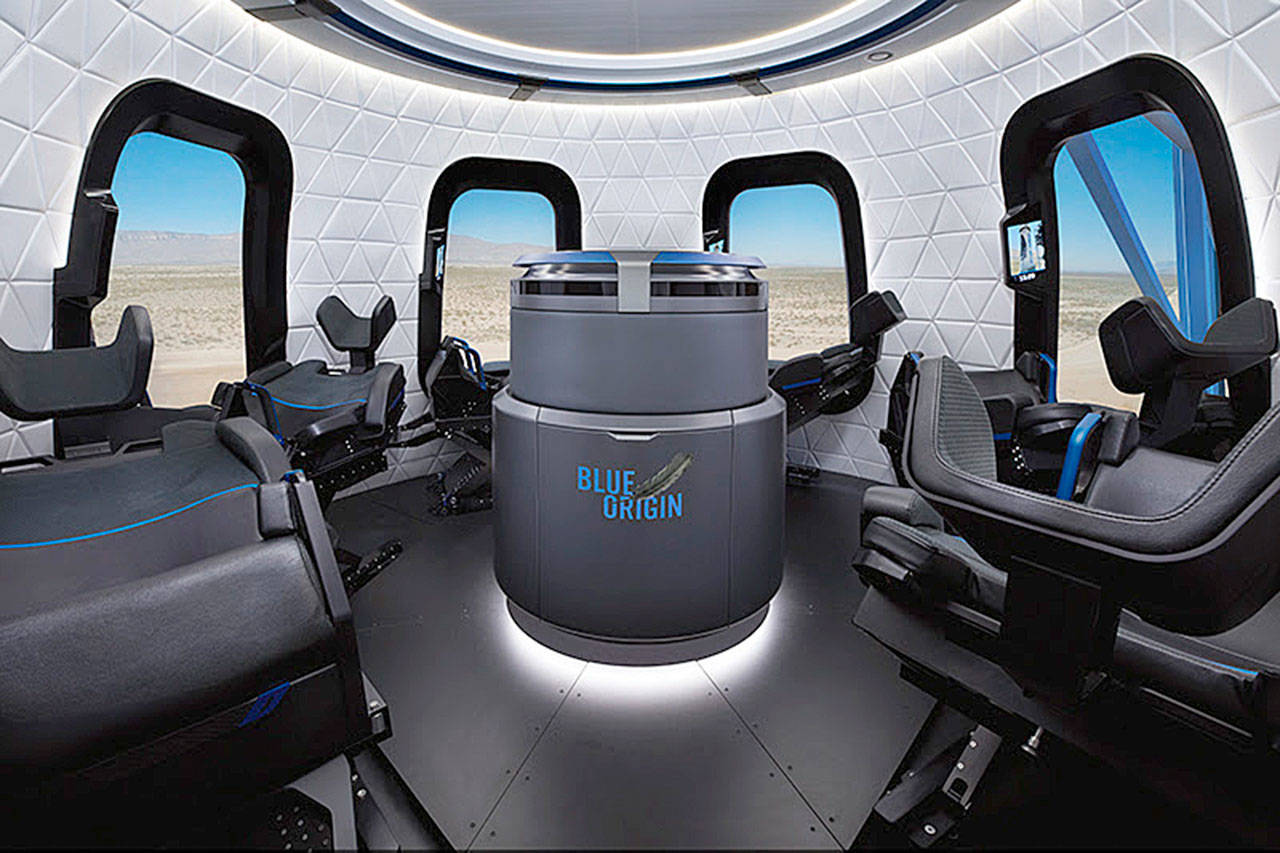Washington state is well positioned to compete in a growing commercial space industry, according to a new study led by the Puget Sound Regional Council.
Read the study at psrc.org/space-study.
From rocket development and launch services to satellite and space vehicle manufacturing, Washington is an increasingly important hub for a growing commercial space sector, according to a Puget Sound Regional Council news release.
“This study shows that the space industry today supports thousands of good paying jobs throughout our region and state and has the potential for significant growth in the future,” said Terry Ryan, Snohomish County council member and Economic Development Board president.
“The central Puget Sound region is already a worldwide leader in aerospace and information technology, and we plan on being a world leader in the space industry as well,” Ryan said.
According to the Washington State Space Economy report, several companies in the region directly employ about 2,900 people in the space industry.
Kent-based Blue Origin employs an estimated 1,100 people, with SpaceX, Aerojet Rocketdyne, Spaceflight Industries, Planetary Resources and Boeing also supplying direct industry jobs.
An estimated 1,100 jobs are indirectly created through the local supply chain and another 2,200 jobs are induced through the spending of the industry and its employees.
Business activities tied to direct, indirect and induced impacts of the space industry will contribute an estimated $1.8 billion in economic activity to Washington communities in 2018.
The estimated 6,200 jobs in the state supported by the space industry will provide an estimated $610 million in payroll. In addition, the space sector contributes about $62 million annually in state and local tax revenues.
The study highlights trends in the overall sector that will help this global industry grow an estimated seven times its current size by 2045, to $2.7 trillion. These trends include lower costs to build and launch satellites and rockets, increasing the range of applications that can utilize space.
Washington has strengths that have helped establish the state in the industry, including long-term investments in space and aerospace supply chains, a large, skilled labor pool, support from universities and strong representation of private firms.
The analysis identifies areas for future work to grow the industry. These include supporting space related startups through expanded access to venture capital, business incubators, and other services; expanding the state’s robust aerospace supply chain to meet the needs of the burgeoning space industry; growing the local talent pipeline for the high skill jobs in demand for the industry; and targeting tax credits for space craft and satellite manufacturing.
The Washington State Space Economy report was developed to help industry leaders, elected officials, policy makers and local economic development professionals strengthen and support the commercial space sector.
PSRC’s Economic Development Board initiated the study of the region’s space sector as a priority action for the regional economic strategy, Amazing Place.
Analysis was performed by BERK consulting, and was supported by contributions from Blue Origin, City of Kent, Suquamish Tribe, City of Redmond, Snohomish County, City of Federal Way, City of Everett, Port of Bremerton and City of Seattle.
PSRC develops policies and coordinates decisions about regional growth, transportation and economic development planning within King, Pierce, Snohomish and Kitsap counties. The council is composed of over 80 entities, including all four counties, cities and towns, ports, state and local transportation agencies and tribal governments within the region.
Here is what the report said about Blue Origin and the Boeing Space Center, each based in Kent, as examples of upper-tier suppliers and original equipment manufacturers in the central Puget Sound region:
• Blue Origin:
Blue Origin is a private spaceflight services, orbital spacecraft and launch vehicle manufacturing company headquartered in Kent. Founded in 2000, this firm has positioned itself at the forefront of the NewSpace field, developing the BE-3 engine and New Shepard suborbital rocket, the BE-4 engine for United Launch Alliance’s Vulcan rocket while investing in the creation of the New Glenn orbital launch vehicle for spaceflight services. Lunar exploration activities have also been proposed. The Kent campus is also supplemented by launch and testing facilities in Texas, the New Glenn manufacturing and launch complex in Florida, as well as a proposed manufacturing facility in Huntsville, Ala.
• Boeing Defense, Space & Security:
The Boeing Company operates facilities for Boeing Defense, Space & Security in the central Puget Sound region. Previously, these activities have been hosted at the Boeing Kent Space Center in Kent, which opened in 1964, and have included the development and construction of the lunar rovers and upper-stage rockets for space exploration. This facility has been downsized, and the company has shifted employees to facilities in Tukwila.
Talk to us
Please share your story tips by emailing editor@kentreporter.com.
To share your opinion for publication, submit a letter through our website https://www.kentreporter.com/submit-letter/. Include your name, address and daytime phone number. (We’ll only publish your name and hometown.) Please keep letters to 300 words or less.

